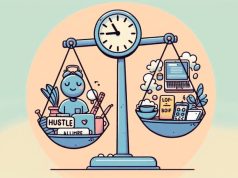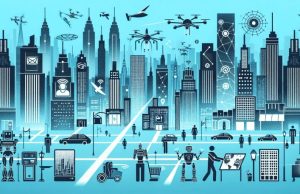As we edge further away from the immediate threat of the global pandemic, our reflection on the past few years reveals a seismic shift in the landscape of work. The New York Times’ readership, a demographic characterized by intellectual curiosity and a keen awareness of societal shifts, have borne witness to unprecedented changes in the way we approach our jobs, our roles within them, and the environments we operate in. In the post-pandemic era, the concept of workplace sustainability has taken on an expanded meaning, encompassing not only eco-friendly practices and economic viability but also the well-being and mental health of the workforce.
The transition that many companies made to remote and hybrid work models during the pandemic has had lingering effects on employee stress and anxiety. For recruiters and managers within these changing paradigms, identifying and mitigating the factors contributing to workplace stress is not just compassionate; it’s critical to business resilience and success.
**Flexible Work Schedules: The Power of Choice**
Once considered a perk, flexible work schedules have proven to be a necessity for many. Such adaptability allows individuals to balance their professional responsibilities with personal obligations, ultimately reducing stress and preventing burnout. Recruiters should seek to understand the unique needs of their candidates and advocate for flexibility within their placements. This creates a talent pool that feels valued and understood, fostering loyalty and driving performance.
**Cultivating Open Communication: A Pillar of Support**
Communication is the lifeblood of any strong organization. In a climate where change is constant, it’s essential to foster a culture of open dialogue. Managers must be equipped to not only talk but to listen intently. Encouraging feedback and acting on concerns shows employees that their voices are not just heard but are influential in shaping their work environment. Regular check-ins and mental health workshops can be platforms for open discussions, helping to destigmatize mental health challenges.
**Mental Health Days: Integrating Compassion into PTO Policies**
The inclusion of mental health days in PTO policies is an unequivocal statement that a company prioritizes the well-being of its employees. Normalizing the need for mental rest just as one would recuperate from physical illness is a modern approach to PTO that can significantly enhance the overall health of the workforce. Recruiters can play a role in this by setting clear expectations during the hiring process and championing these policies with their clients.
**Remote and Hybrid Models: Balancing Connection and Isolation**
Despite the benefits of remote work, it is not without its pitfalls. The isolation experienced by some can exacerbate feelings of anxiety and detachment. Companies must strive to find the balance between the flexibility remote work allows and the human need for connection. This could mean reimagining virtual collaboration, creating opportunities for in-person meetups, or providing resources for coworking spaces. The key is to regularly evaluate how these models impact employee morale and make adjustments as necessary.
**Expert Opinions and Case Studies: Learning from the Best**
Gleaning insights from experts in organizational psychology can guide companies in implementing evidence-based strategies. Additionally, analyzing case studies from companies that have successfully navigated post-pandemic workplace stress can provide a blueprint for others to follow.
**Actionable Steps for Recruiters: Building a Resilient Workforce**
1. Educate clients on the importance of flexible work paradigms and their role in reducing stress.
2. Facilitate open conversations about mental health during the recruitment process to set the tone.
3. Encourage companies to adopt comprehensive PTO policies that include mental health considerations.
4. Foster community by organizing regular team-building activities, even in a virtual setting.
5. Continuously solicit and act on employee feedback to tailor strategies to evolving needs.
**Conclusion**
As we move forward into the new normal, it’s clear that the health of a company is inextricably linked to the mental health of its employees. By implementing thoughtful, flexible, and communicative practices, recruiters and managers can build a robust, resilient workforce. The post-pandemic era calls for a workplace that doesn’t just survive but thrives, with a workforce at its heart that is cared for, supported, and heard.



























